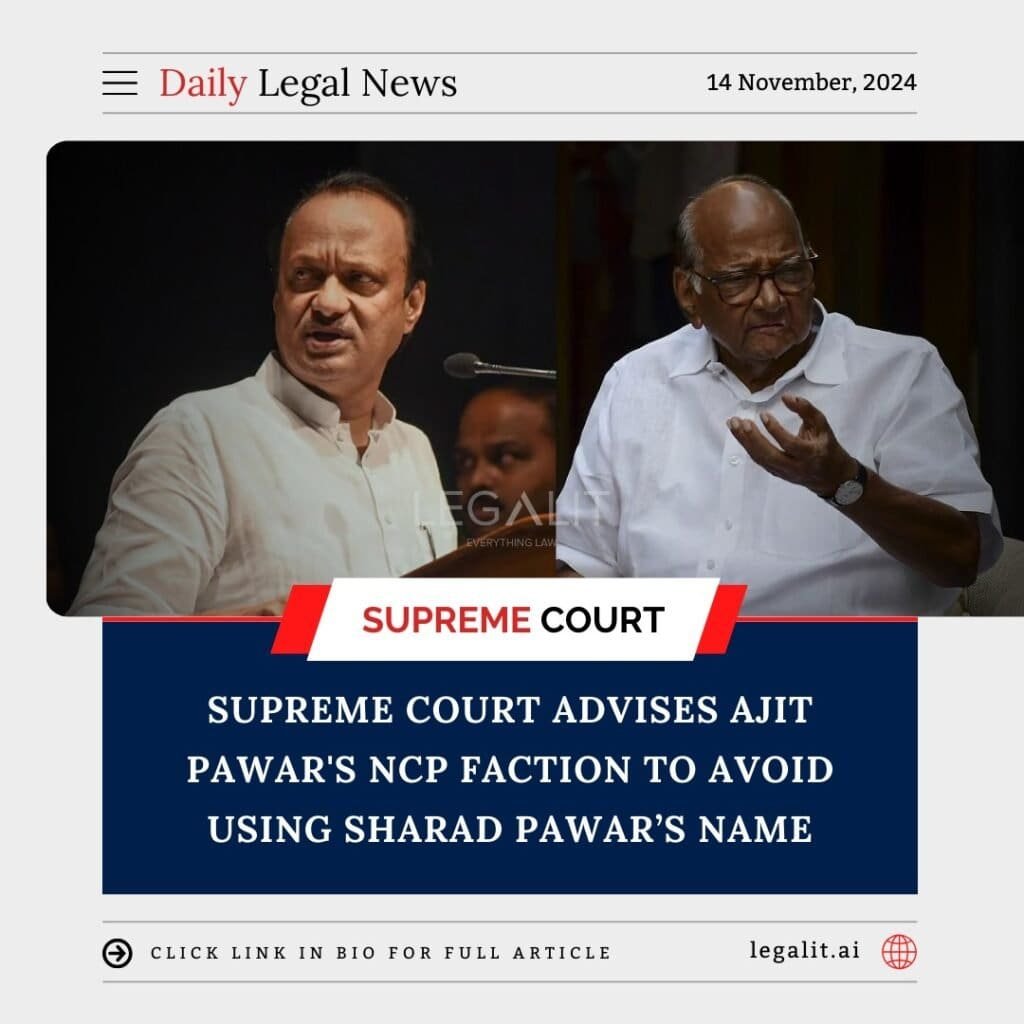
The Supreme Court recently urged the Ajit Pawar faction of the Nationalist Congress Party (NCP) to establish its own identity and refrain from using veteran politician Sharad Pawar’s name. The bench conveyed this advice while addressing the ongoing dispute between the factions led by Ajit Pawar and Sharad Pawar over the use of the party’s name and symbol.
Background:
The internal rift within the NCP, which came to light after Ajit Pawar’s alignment with the BJP-led Maharashtra government, led to a division within the party. This split triggered a legal battle over the use of the NCP’s name, legacy, and electoral symbol. Ajit Pawar’s faction has been seeking legitimacy under the same NCP banner, while Sharad Pawar’s supporters contend that the party’s identity rightfully belongs to the faction led by its founder, Sharad Pawar.
Court’s Rationale:
During the hearing, the Supreme Court advised Ajit Pawar’s faction to avoid relying on Sharad Pawar’s name, suggesting that political entities should “stand on their own legs” to establish independent identities. The bench noted that political factions emerging from splits within established parties must work toward building separate identities rather than drawing on the reputation of founding leaders, which can potentially mislead or confuse voters about party allegiances and ideologies.
Existing Measures:
The Election Commission (EC) has authority over party name and symbol disputes. In similar cases, the EC assesses factors like party constitutions, support among members, and the legacy claimed by each faction before making decisions on the rightful claimants to names and symbols. Pending a decision, the court’s advice to refrain from using Sharad Pawar’s name reflects an attempt to ensure clear public differentiation between the factions.
Conclusion:
The Supreme Court’s remarks serve as a reminder for political factions to cultivate unique identities and avoid leveraging the reputations of other leaders for legitimacy. As the legal dispute unfolds, the court’s advice may influence both factions to focus on distinct paths forward, ultimately leading to clearer representation for voters and strengthening democratic values through independently established political identities.